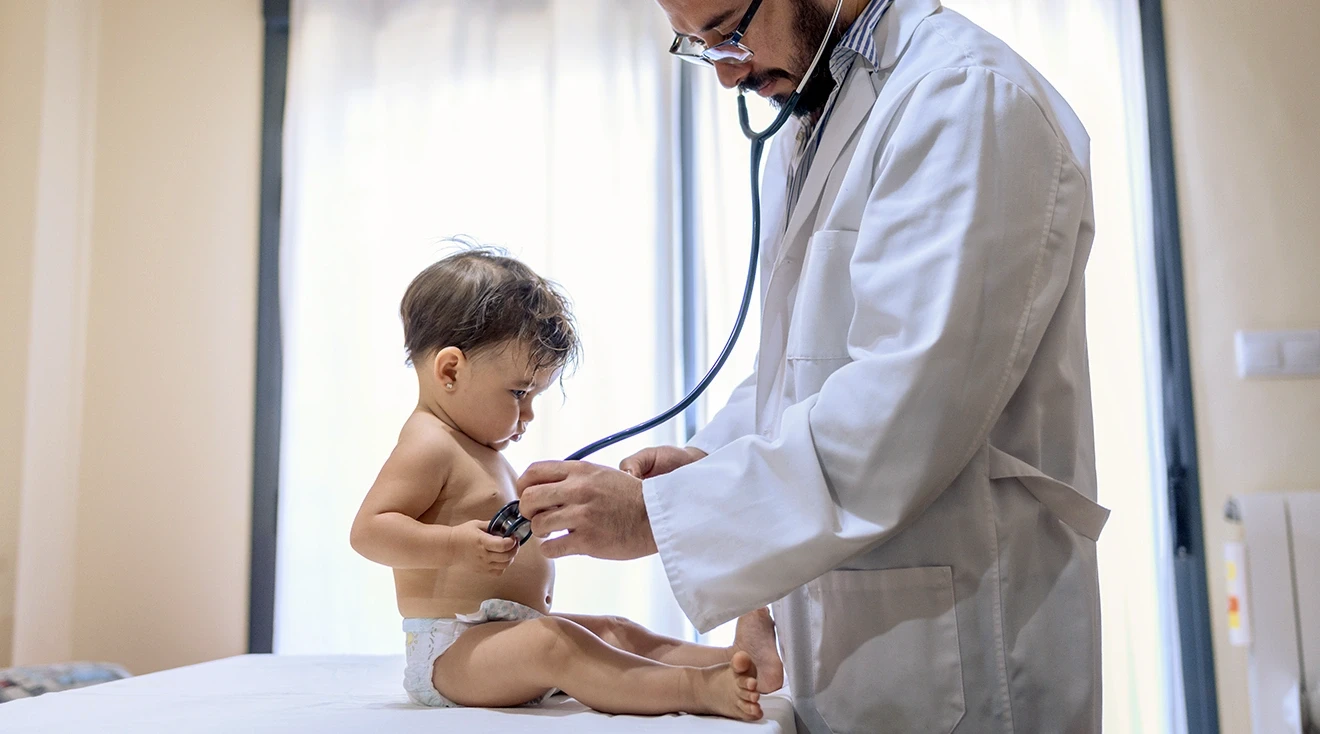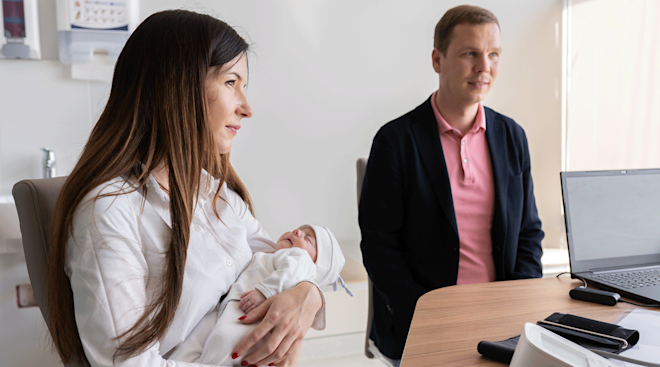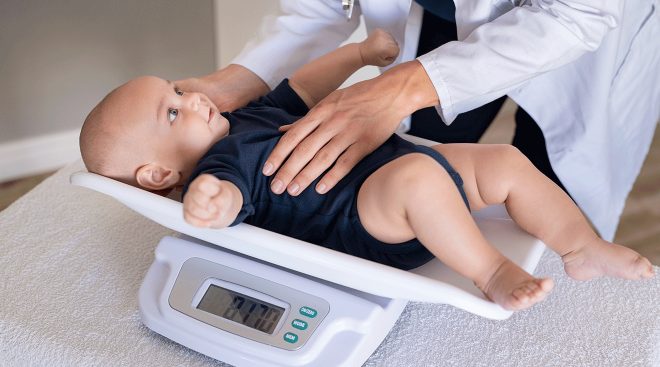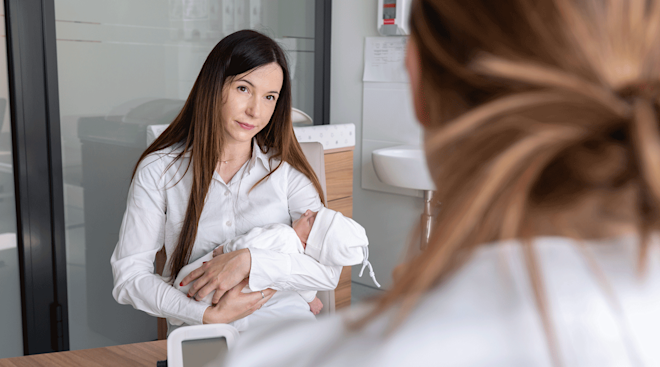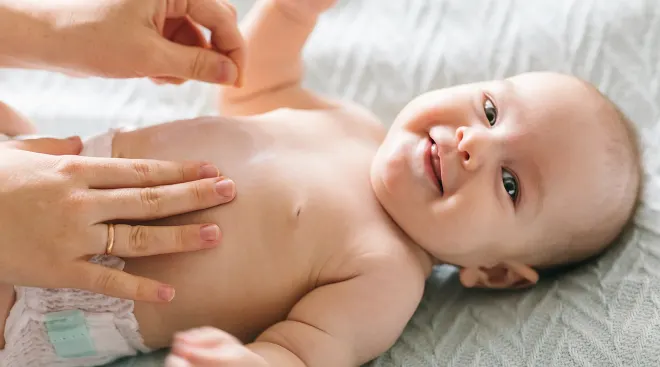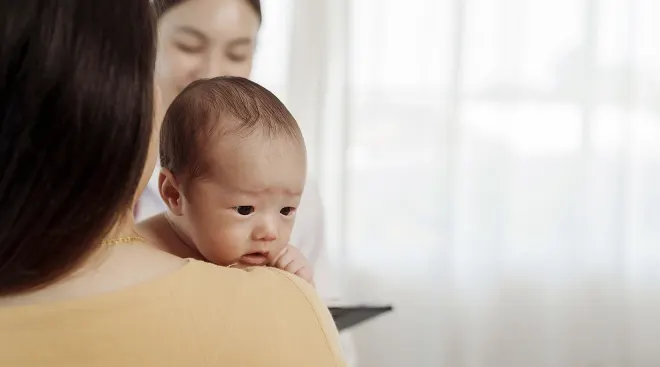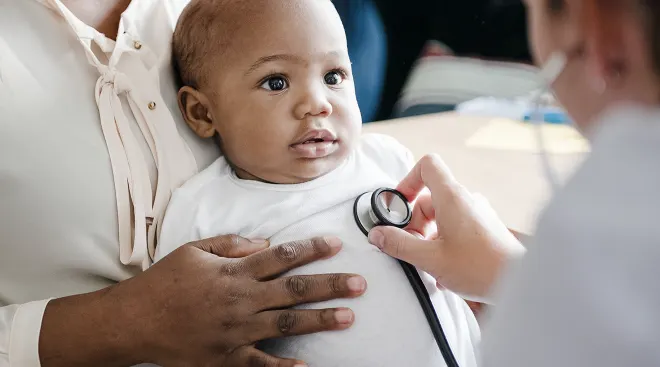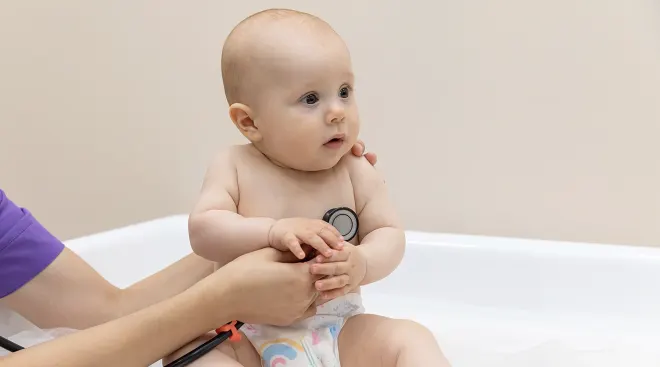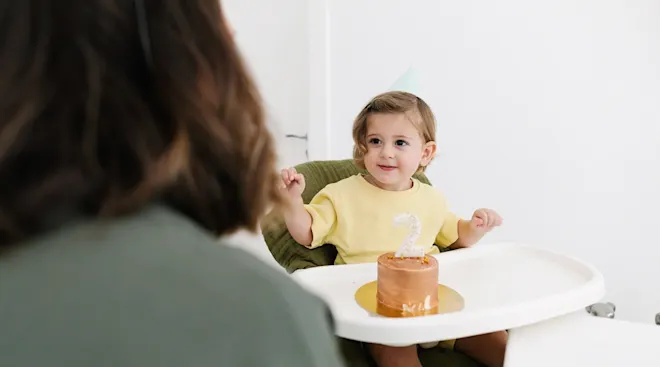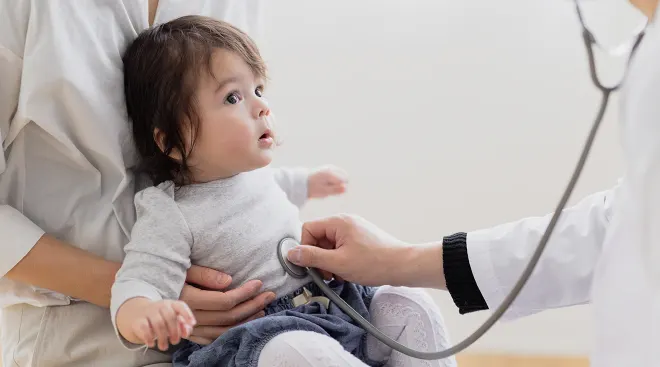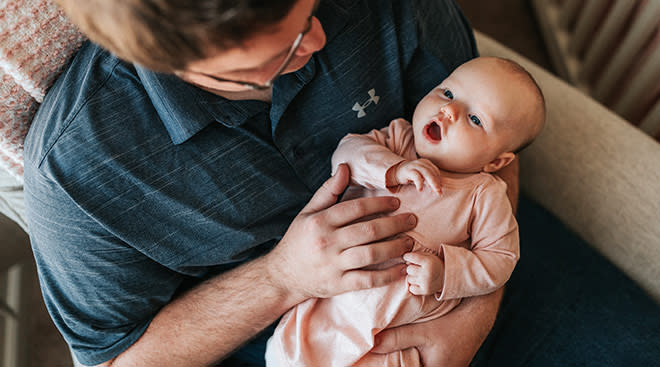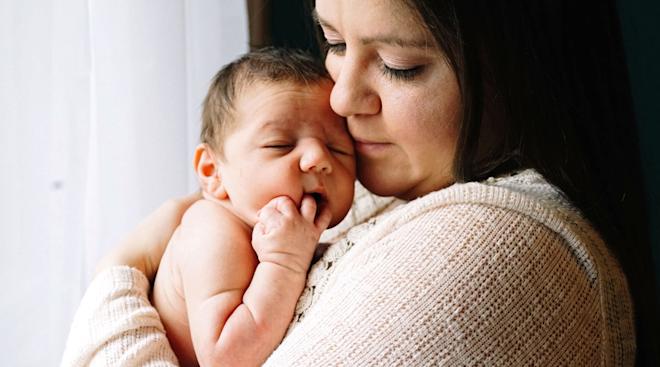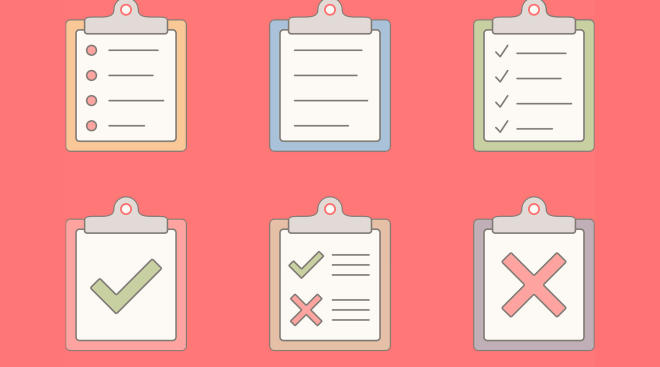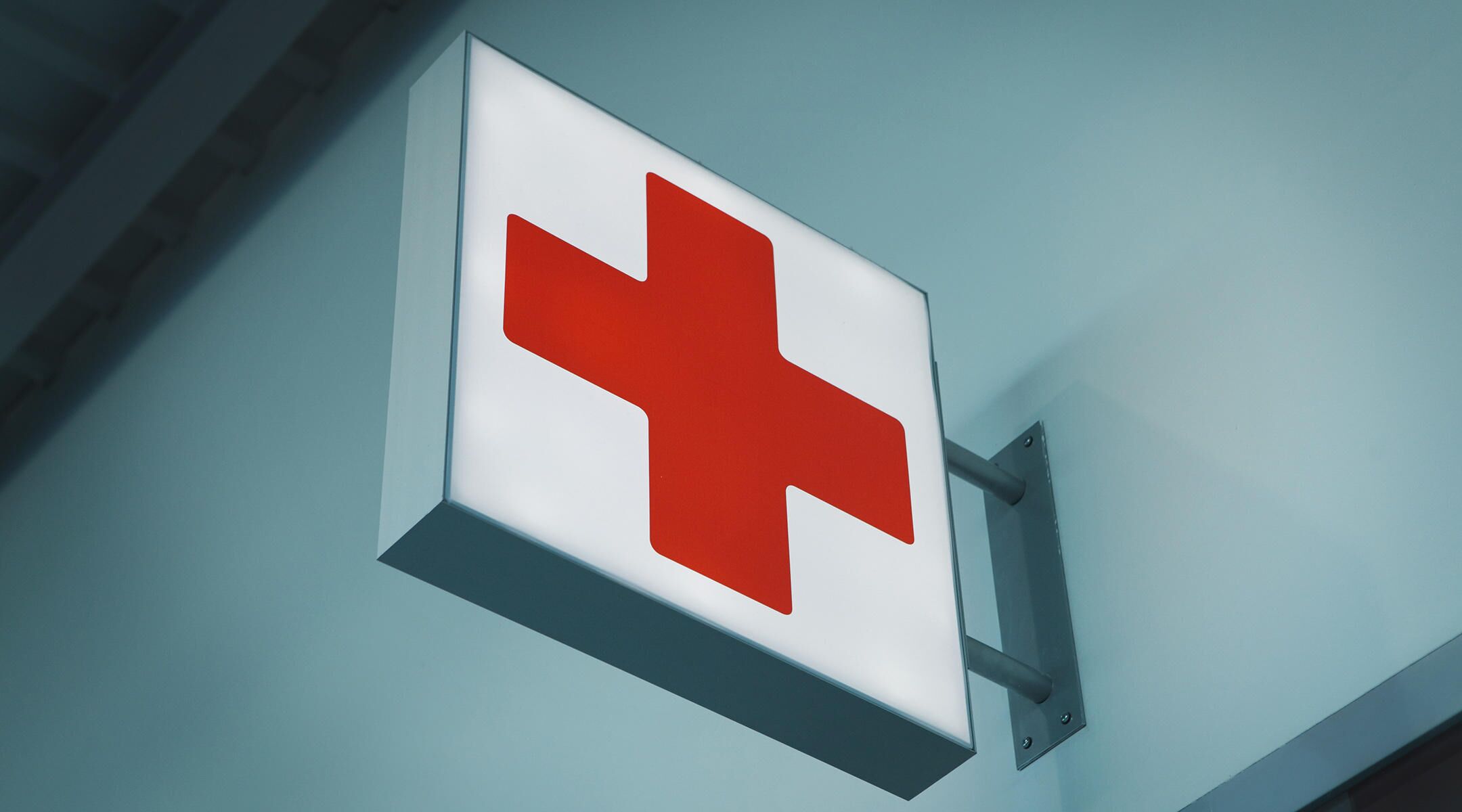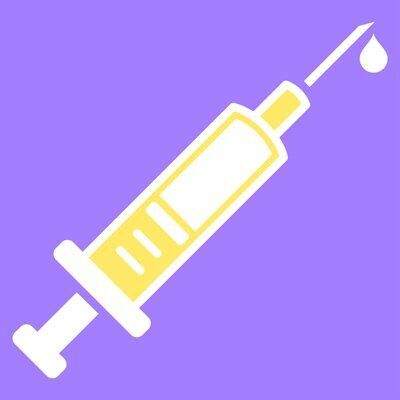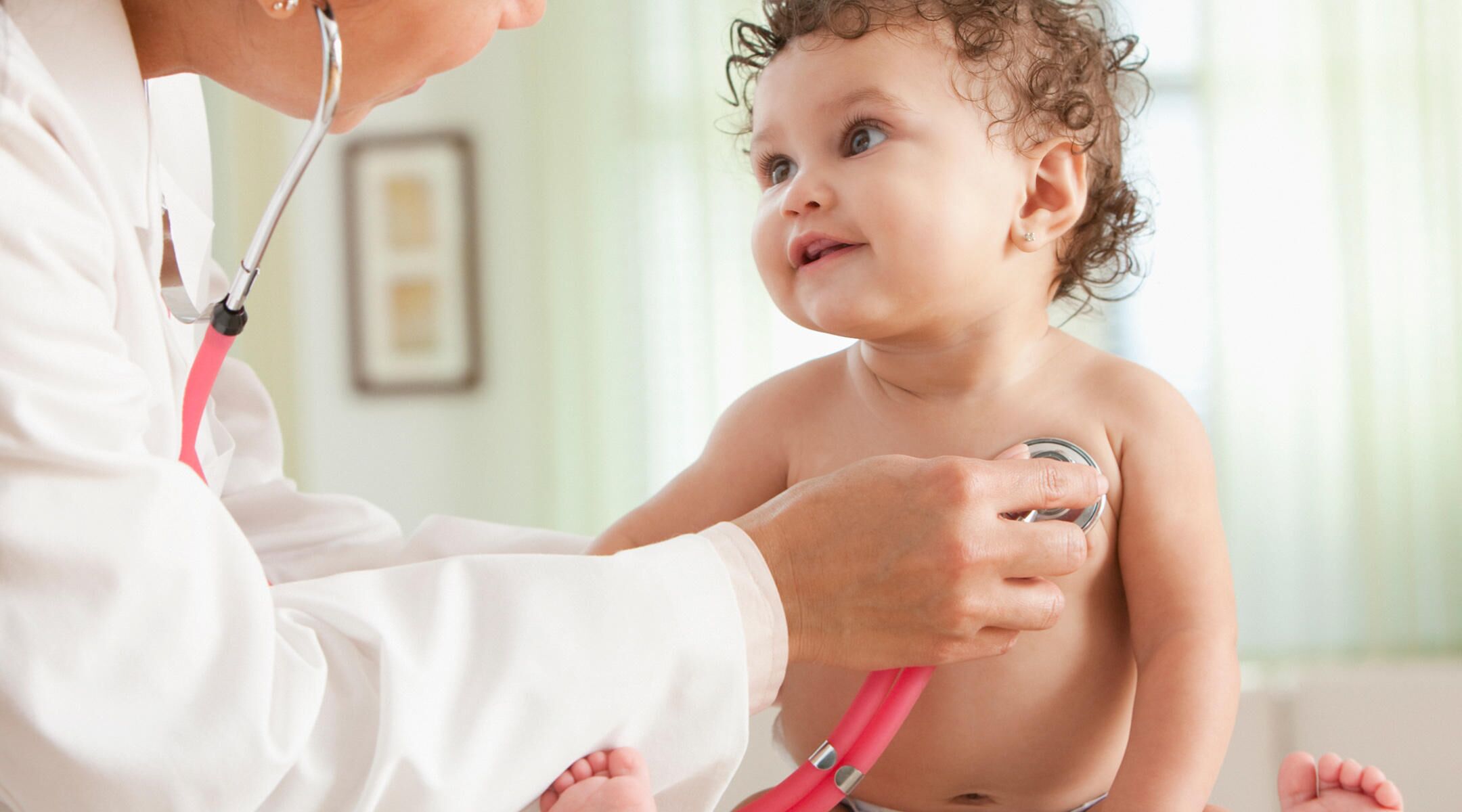What to Expect at Your Toddler's 15 Month Checkup
It’s no secret that babies change quickly. By 15 months, baby may be taking a few steps independently, saying a handful of words, teething and identifying familiar objects. But to gauge just how rapidly baby is progressing, your pediatrician will want you to bring them in for a 15 month checkup. Wondering what your doctor will be looking for when it comes to your little cutie’s growth and development? Keep reading to learn everything you need to know before your appointment.
After the big 12 month checkup, the next appointment on the docket will be your child’s 15 month visit. Like previous appointments, it involves a thorough physical and verbal examination of your child’s overall development and growth. Here’s what you can expect.
Physical screenings at the 15 month checkup
According to the American Academy of Pediatrics (AAP), some physical screeners your pediatrician may conduct at the 15 month checkup include:
- Measuring baby’s height, weight and head circumference (these measurements are then added to their growth chart, which would have been started at baby’s very first visit)
- Blood pressure
- Hearing test
- Vision screening using a SPOT vision test
- Checking for new teeth and applying fluoride varnish—which strengthens tooth enamel—to any new and existing teeth (only if your child hasn’t yet had their first dentist appointment)
- Screening for lead exposure and anemia
Milestone assessment at 15 months
Babies hit many milestones in those first few months of life—and your pediatrician wants to know about each one, says Lauren Crosby, MD, FAAP, a pediatrician based in Beverly Hills. To get a sense of how baby is progressing in terms of their motor and cognitive milestones, she says your pediatrician will likely ask some of the following types of questions:
- Is baby pulling up to stand, cruising and almost walking? Or, is baby able to walk independently?
- Does baby recognize familiar objects?
- Can baby identify different animal sounds?
- Does baby point, wave or clap?
- Do they understand and follow simple one-step commands?
- Do they babble, or are they able to say a few words, besides “mama” and “dada”?
- Do they scribble and stack blocks?
- Does your little one give hugs? Are they affectionate in other ways?
Nutrition check-in at the 15 month checkup
Ensuring baby is eating a variety of healthy and nutritious foods is often top of mind for parents and pediatricians at the 15 month appointment, says Ruben Espinoza, MD, a pediatrician with Banner Medical Group, note—especially since tiny tots can quickly become picky eaters. “This can cause a lot of parental anxiety for fear of not only malnutrition, but also worries about the strength of their child’s immune system if they are not ingesting a balanced diet,” Crosby explains. Below, some questions your provider may ask about baby’s eating habits:
- Does your child feed themselves with their fingers? Do they use any utensils?
- Do they drink from anything other than a bottle?
- Can they drink from a cup without spilling?
- Do they eat a variety of foods?
- Are they becoming picky at mealtimes?
- How many meals do they have per day? How much do they generally eat at each meal?
- What does your child snack on?
- What types of fluids do they drink?
Along with food intake, your provider will also want to know how many dirty diapers or bowel movements your child has during a day, as well as their texture and consistency, says Loretta Cody, MD, a board-certified pediatrician based in Connecticut.
Sleep check in at the 15 month checkup
At 15 months you may wonder how much sleep your toddler really needs and when to drop their second nap. It’s a topic your pediatrician will probably ask you about too, Cody says. Here, some questions to be prepared to answer:
- How many hours of sleep does your child get at night and during daytime naps?
- What does their bedtime routine look like?
- Do they sleep and nap around the same time every day?
- Do they wake up during the night?
- How does your child go back to sleep after waking up? Do you put them back to bed, or do they self-soothe?
Child safety check in at the 15 month checkup
During the 15 month checkup, your pediatrician will also go over child safety inside and outside the house, Cody says. They’ll talk or ask about the following topics:
- Your house has been properly childproofed with baby gates and anchored furniture
- Medications are kept in a safe place that’s out of reach for kids
- Hot objects on gas ranges and stoves are out of reach for kids
- A strong understanding of pool safety and drowning prevention
- Car seat safety
Cody says that once all questions are answered and concerns are addressed, your pediatrician will move on to discuss any other recommended screenings and vaccinations for your child’s 15 month checkup.
Yes, babies do get shots at the 15 month appointment, but these are largely dependent on which immunizations they got at their 6 month and 12 month checkups, Espinoza notes. Your child’s vaccination schedule may also vary based on your specific pediatric office. “The vaccines will vary at this visit depending on the practice, because there’s an age range for them to be given,” Crosby adds. However, they’ll typically get at least two vaccinations at the 15 month checkup. Depending on your kiddo’s vaccination history and your pediatric office, your child may by due for the following vaccines:
- DTaP (diphtheria, tetanus and pertussis)
- Hib (haemophilus influenzae type B)
- PCV 13 (pneumococcal disease)
- Measles, mumps and rubella (MMR)
- Varicella (chickenpox)
- Hepatitis B
- Hepatitis A
- Inactivated polio vaccine (IPV)
- Influenza vaccine (if it’s flu season)
“Your healthcare provider will make sure you’re up to date on all vaccinations by looking at your child’s chart, and may add any additional vaccines if they weren’t given at an earlier checkup,” Cody says.
All experts encourage parents to bring up any questions or concerns they have about baby’s growth and development at baby’s checkup. “There is a tendency to forget questions with all that happens during a checkup, so best to write it all down,” Cody says. Some topics for questions you might ask include baby’s growth, feeding, development, learning and safety. Some examples of questions include:
- Is it okay that my child has a pacifier?
- Is it okay that my child still drinks from a bottle?
- When should I start bottle weaning?
- Is it safe for my child to have a bottle at bedtime?
- How much milk should my 15-month-old be taking in?
- Is it okay if my child doesn’t finish food during meals?
- How can I get my child to eat a variety of foods?
- Is it okay to give my child juice at this age?
- How can I help my child build a strong immune system?
- How can I teach my child to play nicely with other kids?
- How should I be disciplining my child?
- When should I transition to a toddler bed?
- At what age should baby start swimming lessons?
Odds are many of these questions and concerns will be addressed as your pediatrician makes their verbal assessment. However, there are some behaviors that should be flagged to your provider, Cody says, including if your child:
- Doesn’t make eye contact or respond to their name
- Isn’t attempting to cruise or walk
- Doesn’t point or wave
- Makes repetitive movements
Don’t hesitate to bring up any concerns or gut feelings you may have about your child’s development. After all, as Espinoza says, the 15 month checkup is all about “creating a safe and structured environment that also allows your fearless explorer freedom to learn from their surroundings.”
Now that you know what to expect at baby’s 15 month appointment, it’s also important to know how to prepare for it. Espinoza recommends parents bring any records of immunizations for their child as well as a list of questions and concerns they have. Beyond this, you’ll also want to plan for a long wait time at the doctor’s office. Bring things that’ll keep your kiddo entertained and calm, like a pacifier, favorite books and toys, snacks, milk and water—these may also help soothe and distract them if they become upset or frustrated during the checkup. “At 15 months, the child starts to realize where they are and typically aren’t happy about it. This checkup can be especially daunting when the physical examination part of the visit starts,” Crosby says. “I always reassure parents that this is very normal and that over time, it’ll go away.” In the meantime, consider buying a toy doctor kit, and practice playing doctor at home with stuffed animals and family members. Familiarizing baby with how doctors’ offices work can help prepare them for their next well-visit, which will occur at 18 months.
Please note: The Bump and the materials and information it contains are not intended to, and do not constitute, medical or other health advice or diagnosis and should not be used as such. You should always consult with a qualified physician or health professional about your specific circumstances.
Plus, more from The Bump:
Expert sources:
Loretta Cody, MD, is a board-certified pediatrician based out of Connecticut. She received her medical degree from New York Medical College and completed her residency at Yale New Haven Children’s Hospital.
Lauren Crosby, MD, FAAP, is a pediatrician with La Peer Pediatrics in Beverly Hills, California, as well as a mom of two. She earned her medical degree from UCLA School of Medicine and completed her residency at Cedars-Sinai Medical Center. She currently serves as an official spokesperson for the American Academy of Pediatrics.
Ruben Espinoza, MD, is a pediatrician and the division medical director for primary care at Banner Medical Group’s east region in Arizona. He completed his medical degree at Universidad Autonoma De Baja California and his residency at Elmhurst Hospital Center-Mt Sinai Services in New York City.
Loretta Cody, MD, is a board-certified pediatrician based out of Connecticut. She received her medical degree from New York Medical College and completed her residency at Yale New Haven Children’s Hospital.
Lauren Crosby, MD, FAAP, is a pediatrician with La Peer Pediatrics in Beverly Hills, California, as well as a mom of two. She earned her medical degree from UCLA School of Medicine and completed her residency at Cedars-Sinai Medical Center. She currently serves as an official spokesperson for the American Academy of Pediatrics.
Ruben Espinoza, MD, is a pediatrician and the division medical director for primary care at Banner Medical Group’s east region in Arizona. He completed his medical degree at Universidad Autonoma De Baja California and his residency at Elmhurst Hospital Center-Mt Sinai Services in New York City.
Healthy Children (American Academy of Pediatrics), Your Checkup Checklist: 15 Months Old, January 2022
Learn how we ensure the accuracy of our content through our editorial and medical review process.
Navigate forward to interact with the calendar and select a date. Press the question mark key to get the keyboard shortcuts for changing dates.

































